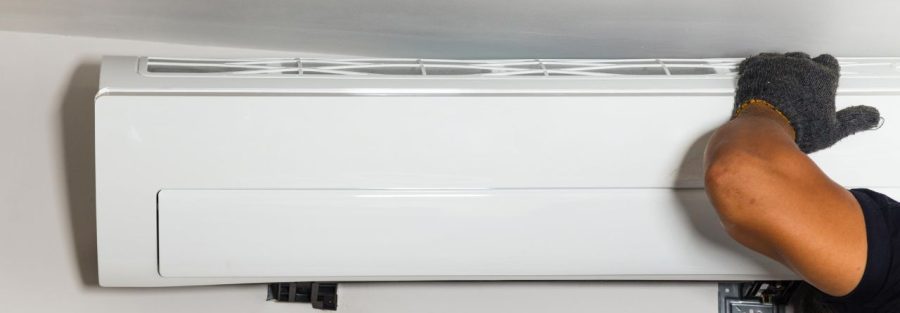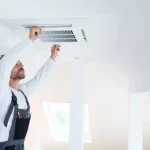Replacing an air conditioner in Florida is a significant investment. Understanding the costs involved is crucial for homeowners.
Florida’s climate demands efficient cooling systems. This makes choosing the right air conditioner essential. When planning for a new system, it’s important to estimate air conditioning costs to understand the full scope of expenses for AC replacement.
The cost to replace an AC unit varies widely, and ac replacement costs are a key consideration for homeowners. Factors like unit size, brand, and installation complexity play a role.
Energy efficiency is another key consideration. Higher efficiency units can lead to long-term savings. Replacement costs may also include expenses beyond the unit itself, such as labor, permits, and refrigerant changes, so understanding all related costs is important for comprehensive budgeting.
Homeowners should also consider potential rebates and incentives. These can help offset initial costs.
The type of ac unit you choose will impact your overall costs. This guide will explore the average costs and factors influencing AC replacement in Florida, and why a reliable air conditioning system is essential for comfort in Florida’s climate.
Average Cost to Replace Air Conditioner in Florida
The cost to replace an air conditioner in Florida can range from $3,500 to $7,500. The AC unit cost is a major component of the total expense. This broad range reflects the variety of factors impacting pricing.
Several elements influence these costs. They include the unit’s size, brand, and energy efficiency. Installation costs can vary significantly based on system complexity, home size, and equipment choice. Labor costs also play a significant role in the final price.
Specific details can vary depending on the home’s needs. The system type selected will impact both the installation cost and the cost to install the new unit. Homeowners should be aware that high-quality installation may incur additional costs.
It’s crucial to budget carefully and consider all expenses. For example, AC replacement in Florida typically costs between $3,500 and $7,500, depending on system type, efficiency, and installation complexity. These include potential modifications to existing ductwork and optional upgrades. Keep in mind:
- Unit size and capacity
- Brand and energy efficiency
- Installation complexity
Key Factors Influencing AC Replacement Cost in Florida
Various factors determine the cost of replacing an air conditioner in Florida. The condition of the existing ac unit can affect the complexity and cost of replacement. These include the size of the unit, energy efficiency, and the complexity of installation.
Homeowners often find that brands and models with better features tend to cost more. Choosing the right new unit for your home is important to ensure optimal performance and value. Labor charges also vary based on the contractor’s expertise and the job’s complexity.
Ductwork is another consideration. Existing ductwork condition can either simplify or complicate an installation. Installing a new ac unit may require additional considerations, such as ductwork upgrades or electrical modifications. Complex setups usually incur additional expenses.
Understanding these factors helps homeowners make informed decisions. A new air conditioning system can offer improved efficiency and comfort. It’s crucial to evaluate each element carefully to avoid surprises. Key factors are:
- Unit size and capacity
- Energy efficiency (SEER ratings)
- Brand and model features
Consulting professionals can aid in navigating these complexities. They provide insights and recommendations for your specific needs.
Unit Size and Cooling Capacity
The size of your AC unit is crucial. A unit that is too small will struggle. Larger homes may require more cooling power to maintain comfort. It won’t cool your home efficiently.
Conversely, a unit that is too large can waste energy. This results in higher bills and can lead to excess wear. Choosing the correct size is essential.
Main considerations include:
- Square footage of the area
- Insulation quality
- Local climate conditions
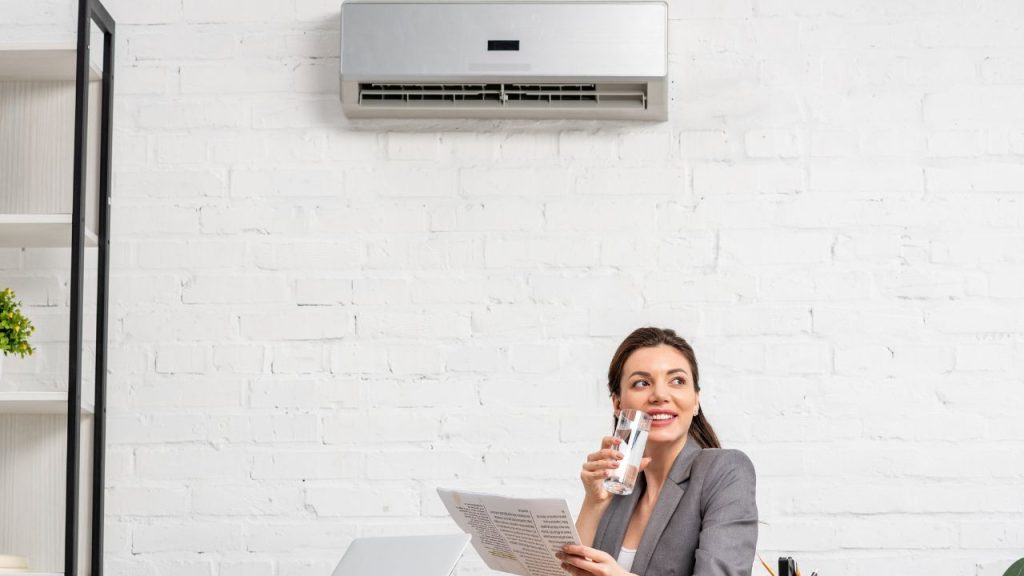
Energy Efficiency and SEER Ratings
Energy efficiency affects both cost and performance. The seasonal energy efficiency ratio (SEER) measures how efficiently an air conditioner operates over a typical cooling season, making it a crucial factor in evaluating energy performance. Higher SEER ratings indicate better efficiency. They usually come with a higher price tag.
However, these can yield long-term savings. A higher SEER rating can lead to greater energy savings over time. Energy-efficient systems reduce electricity bills significantly. You’ll spend less on energy over the years.
When selecting a system, consider:
- SEER ratings
- The efficiency rating of the unit should be a key consideration when choosing a new system.
- Long-term energy savings
- Environmental impact
Brand, Model, and Features
Brands and their specific models can greatly influence cost. High-end brands with advanced features tend to be more expensive. Premium brands and advanced features often come with higher upfront costs. This includes smart technology integration.
These advanced systems often offer enhanced comfort. Newer units may offer improved efficiency and technology compared to older models. They provide better air quality and additional control features. Researching brands can help find the right balance.
Consider these aspects:
- Reputation of the brand
- Available features and technology
- Reliability and warranty
When choosing between brands and models, compare options to ensure you pay a fair price for your chosen system.
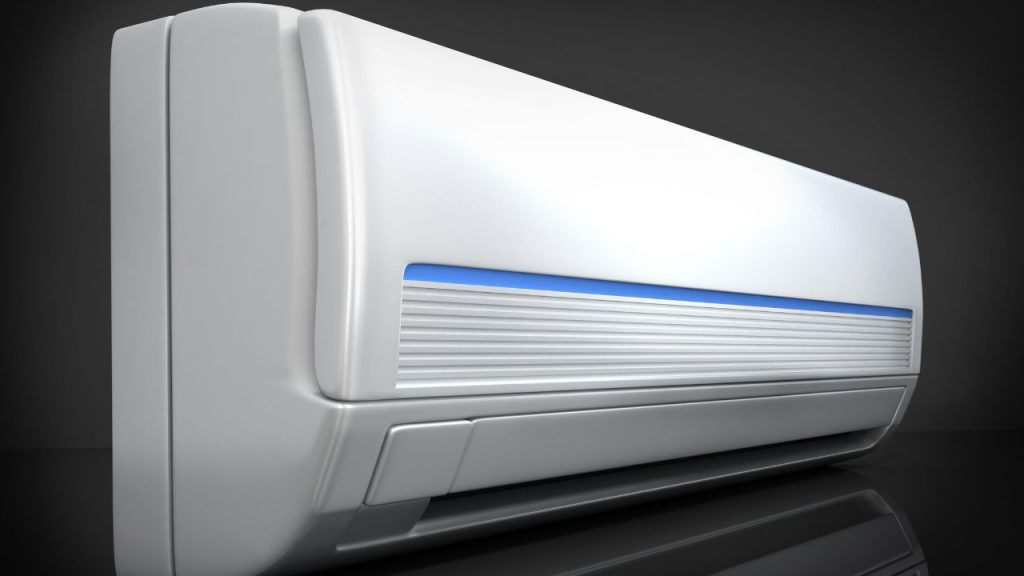
Labor and Installation Complexity
Installation requires skilled labor. Complexity can vary based on system choice. For complex installations, it is essential to hire a professional hvac contractor who can ensure proper system setup, handle critical assessments, and manage any necessary modifications. Unique home layouts also impact labor costs.
Experience and expertise of the HVAC team affect the price. More complex installations typically lead to higher charges. Prioritize hiring experienced professionals.
Key factors include:
- Installer’s experience level
- Complexity of the setup
- Location-specific challenges
Ductwork Condition and Modifications
Ductwork integrity is vital for optimal system performance. Old or faulty ducts can hinder efficiency. When installing a full HVAC system, ductwork modifications may be necessary to ensure proper heating, ventilation, and air conditioning throughout the home. They might require significant repairs or modifications.
Duct modifications increase overall costs. It’s essential to inspect ducts prior to installation. This ensures any issues are addressed in advance.
Considerations for ductwork include:
- Existing condition of ducts
- Required modifications or repairs
- Impact on overall airflow efficiency
Types of AC Systems Available in Florida
Florida homeowners have a variety of air conditioning systems to choose from, each offering unique benefits depending on your home’s needs and budget.
The most popular choice is the central air conditioning system, which provides consistent, whole-home cooling and is often the most energy efficient option for larger spaces. Central air conditioning systems are ideal for Florida’s climate, delivering reliable cool air throughout the hottest months.
Ductless mini split systems are another excellent choice, especially for homes without existing ductwork or for those seeking zoned cooling. These split systems allow you to control temperatures in individual rooms, which can help save money on energy bills and increase overall comfort. Ductless mini split systems are also known for their quiet operation and energy efficiency.
For smaller spaces or supplemental cooling, window units and portable units are available. Window units are a budget-friendly solution for single rooms, while portable units offer flexibility to move cooling power where it’s needed most.
However, these options may not be as energy efficient as central air conditioning or split systems, and they can be noisier during operation.
When selecting an air conditioning system, consider your home’s size, layout, and your energy efficiency goals. Modern systems offer a range of features to help you stay comfortable while keeping energy costs in check.
Additional Costs to Consider
When replacing an AC system, additional expenses might surface. These costs can surprise homeowners who only budget for the unit and basic installation. Replacement costs can include more than just the price of the new unit, such as labor, refrigerant changes, and permit fees.
Permits may be required for installations and carry associated fees. Additionally, you might need electrical upgrades to accommodate the new system. For some systems, installing a new electrical circuit may be required, which can increase labor costs.
Upgraded thermostats, particularly smart ones, also add to the initial cost. Lastly, disposal fees for the old unit can affect your budget. Upgrading or replacing the air handler, which is the indoor component that distributes conditioned air, can also add to the total cost.
Additional considerations include:
- Permit fees
- Electrical system upgrades
- Smart thermostat installation
- Disposal fees for old equipment
- Air handler replacement
Planning for these can prevent unexpected financial burdens. Taking a comprehensive approach to budgeting can safeguard against unforeseen costs.
Old Unit Removal and Disposal: What to Expect
When it’s time to replace your old air conditioning unit, removal and disposal are important steps in the process. Homeowners should expect to pay a separate fee for this service, which can vary based on the size and type of the old unit, as well as the contractor’s pricing structure.
On average, you can expect to pay between $100 and $500 for the removal and proper disposal of your old air conditioning unit.
It’s a good idea to ask your contractor if eco-friendly disposal options are available, as responsible recycling helps minimize environmental impact. Some contractors include removal and disposal in their overall quote, while others list it as an additional charge.
Always clarify these details upfront to avoid unexpected costs and ensure your old unit is handled safely and in compliance with local regulations.
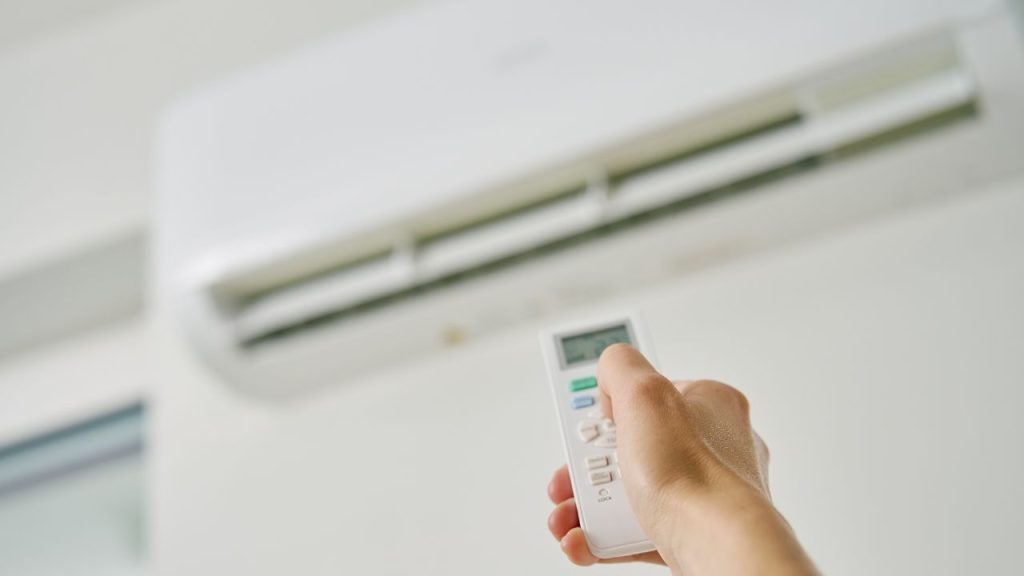
How Florida’s Climate Impacts AC Replacement Needs
Florida’s hot, humid climate heavily influences the lifespan and efficiency of AC units. For many homeowners, a central ac is often the preferred solution for cooling an entire home in Florida. Air conditioners in this region work harder and more frequently due to the constant heat.
This intense use can accelerate wear and tear, making regular maintenance essential. Maintaining a central ac system is especially important in Florida’s hot and humid conditions to ensure reliable performance and longevity. The high humidity also contributes to quicker degradation of system components.
Key climate-related AC considerations include:
- Frequent AC usage
- High humidity impact
- Increased maintenance needs
Understanding these climate effects helps in choosing resilient, efficient systems. A central air conditioner can provide consistent comfort in Florida’s challenging climate. Adapting to these demands ensures comfort and reduces long-term costs.
Signs It’s Time to Replace Your Air Conditioner
Aging air conditioners often show clear signs they need replacement. Frequent repairs can indicate your unit is nearing the end of its life.
Inconsistent cooling and rising energy bills are key indicators of declining efficiency. An unreliable system could leave you uncomfortable during peak heat periods.
Look for these signs to decide on replacement:
- Frequent breakdowns
- Uneven temperatures
- Increased electricity costs
Address these issues early to avoid unexpected outages. Investing in a new air cond
itioner can resolve many of the problems associated with aging systems. A new system can improve comfort and save money over time.
Choosing the Right AC System for Your Florida Home
Selecting the right AC system is crucial for comfort in Florida’s heat. The system type you choose will impact both efficiency and comfort. Proper sizing ensures efficient cooling without overworking the unit.
Consider energy efficiency to save on utility costs over time. SEER ratings help in assessing a unit’s potential savings. A split system may be ideal for homes with specific layout needs, offering flexibility and efficient cooling.
Here’s how to choose the right system:
- Evaluate home size and layout
- Look for high SEER-rated models
- Choose trusted brands with proven reliability
A heat pump can provide both heating and cooling, making it a versatile option for year-round comfort.
Consult with a professional for personalized recommendations. Their expertise can guide you in making the best choice for long-term comfort.
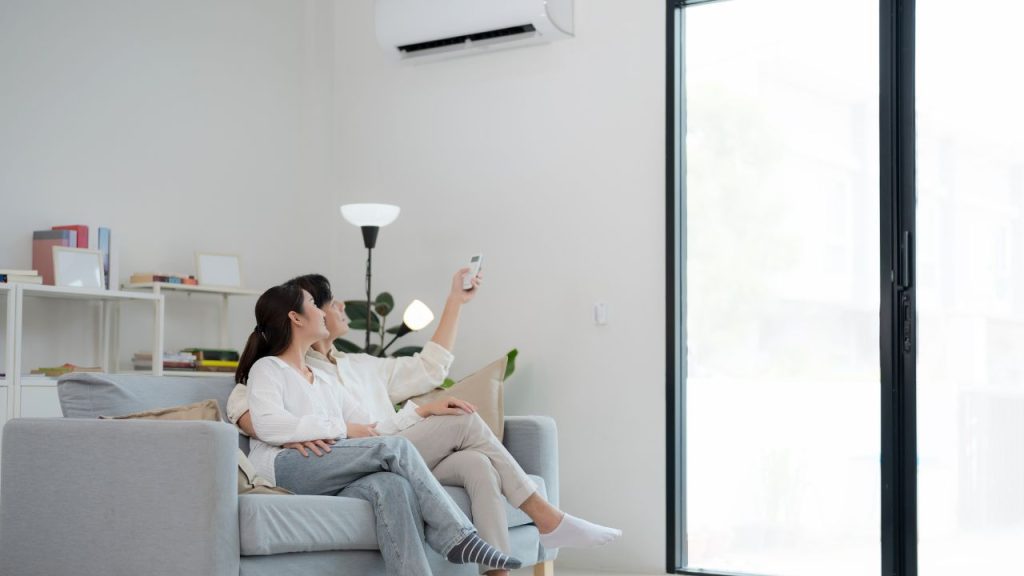
DIY vs Professional AC Installation: Pros and Cons
While the idea of installing a new air conditioning unit yourself might seem like a way to save money, there are important factors to consider before taking the DIY route.
Professional installation by a licensed HVAC contractor ensures that your air conditioning unit is set up correctly, safely, and in accordance with local and federal regulations. This not only protects your investment but also helps your new system operate at peak efficiency.
Professional HVAC contractors bring expertise and experience to the installation process, reducing the risk of costly mistakes or future repairs. They also typically offer warranties and guarantees on their work, giving you added peace of mind.
In contrast, DIY installation can be risky—improper setup may void the manufacturer’s warranty, lead to safety hazards, or result in higher energy bills due to inefficient operation.
Ultimately, while DIY installation might seem appealing for the upfront cost savings, professional installation is the best way to ensure your air conditioning unit delivers reliable, energy-efficient cooling for years to come.
Energy Efficiency, Rebates, and Long-Term Savings
Investing in an energy-efficient AC model can significantly reduce energy bills. High SEER-rated units consume less power, offering potential savings.
Explore rebates and incentives available for eco-friendly installations. Homeowners can also claim tax credits for installing energy-efficient systems, further reducing upfront costs. These can offset the initial high cost of efficient units.
Consider these benefits for long-term value:
- Lower monthly energy bills
- Potential tax credits
- Increased home resale value
Air source heat pumps provide an energy-efficient upgrade, often qualifying for additional rebates and incentives.
Balancing initial costs with future savings is crucial. Heat pumps can offer significant long-term savings due to their efficiency. This approach ensures both comfort and financial efficiency in the long run.
AC Replacement Financing Options for Florida Homeowners
Replacing an air conditioning unit is a significant investment, but there are several financing options available to help Florida homeowners manage the cost. Many professional HVAC contractors offer flexible financing plans, allowing you to spread payments over time rather than paying the full amount upfront. These plans can make it easier to afford a high-quality, energy efficient air conditioning unit.
In addition to contractor financing, government programs such as the Florida PACE (Property Assessed Clean Energy) program can help finance energy-efficient upgrades, including new air conditioning systems.
These programs often offer favorable terms and can be a great way to invest in energy efficient equipment while keeping monthly payments manageable.
Homeowners may also consider using a home equity loan or line of credit to cover the cost of a new air conditioning unit. This approach can provide lower interest rates and longer repayment terms. Exploring all available options ensures you can choose the best solution for your budget and comfort needs.
The AC Replacement Process: What to Expect
Replacing an AC unit involves several essential steps. Understanding each phase can ease the overall process for homeowners. Assessing the existing ac unit is an important first step in the replacement process, as it helps determine what upgrades or changes are needed.
Firstly, a thorough home evaluation determines specific cooling needs. This includes assessing current systems and energy requirements.
The installation phase is critical. Here’s what typically happens:
- Removal of the old unit
- Installation of the new AC, which may require adjustments to accommodate the home’s needs if a new ac system is being installed
- Setting up the outdoor unit as part of the system
- Ensuring proper connections and settings
Lastly, testing ensures optimal performance. Professionals will guide you, addressing questions and demonstrating the system’s features.
AC Replacement Warranty and Guarantee: Protecting Your Investment
A new air conditioning unit is a major investment, so it’s important to protect it with a strong warranty and guarantee. Most reputable manufacturers offer warranties that cover parts and labor for at least 5 to 10 years, depending on the type and quality of the air conditioning unit.
These warranties can save you money on unexpected repairs and provide peace of mind that your system is built to last.
In addition to manufacturer warranties, many professional HVAC contractors offer guarantees on their installation work. This means if any issues arise due to the installation process, the contractor will address them at no additional cost.
Before signing a contract, carefully review the terms of both the warranty and guarantee, and don’t hesitate to ask questions if anything is unclear.
Choosing an energy efficient air conditioning unit from a trusted brand, installed by a reputable contractor, ensures you’ll enjoy reliable cooling and lower energy bills for years to come—backed by the protection of a solid warranty and guarantee.
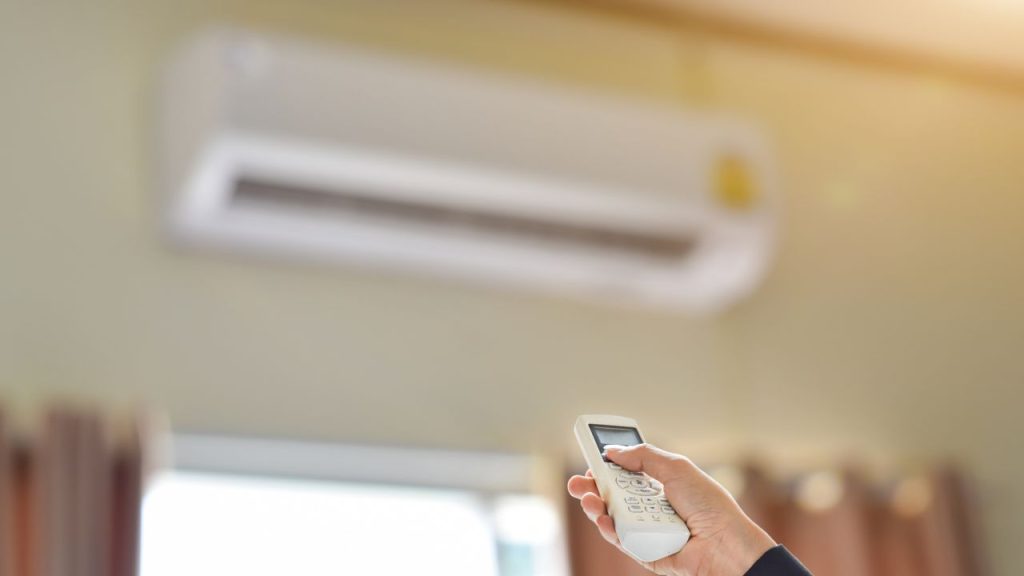
Tips for Saving on AC Replacement Cost in Florida
Cutting costs on AC replacement is possible with smart choices. Research and strategy play key roles in saving money. For some homes, single packaged air conditioners can be a budget-friendly choice that meets cooling needs while keeping costs down.
Consider these tips for reducing expenses:
- Compare quotes from multiple contractors
- Look for available rebates or incentives
- Opt for energy-efficient models for long-term savings
Timing also matters. Schedule replacements during off-peak seasons. Contractors may offer discounts or promotions during these quieter periods, significantly reducing costs. Additionally, stay informed on financing options that can spread the expense over time without breaking the bank.
Importance of Professional Installation and Contractor Selection
Choosing the right contractor is crucial for AC installation. Professional installation is especially important for complex hvac systems, which require expertise to ensure proper setup and integration. Professional installation ensures optimal performance and system longevity.
A skilled contractor provides quality work and minimizes future issues. A well-installed hvac system can provide years of reliable comfort. Ensure they are licensed and insured.
When selecting a contractor, consider:
- Reviews and testimonials
- Experience and expertise
- Detailed estimates and transparent pricing
Prioritize communication and trust. A reliable contractor will offer clear information and personalized solutions, enhancing your home’s comfort efficiently.
Frequently Asked Questions About AC Replacement in Florida
What is the average lifespan of an AC unit in Florida?
Typically, air conditioning units last 10 to 15 years in Florida. Regular maintenance is key to extending this lifespan.
How can I determine the right size for my AC unit?
A professional HVAC assessment can ensure the perfect size. This prevents inefficiency and high energy costs.
What are SEER ratings?
SEER ratings measure the energy efficiency of an AC unit. Higher ratings mean better efficiency and potential savings.
Is a window AC unit a good alternative to central air?
A window AC unit is often less expensive upfront and easier to install than a central system, making it suitable for cooling a single room or small space. However, upgrading from a window AC unit to a central air system can significantly increase overall project costs, but offers better whole-home comfort and efficiency.
Conclusion: Making the Best Choice for Your Comfort and Budget
Choosing the right AC system is crucial for comfort. It also impacts your energy expenses significantly. Evaluate your options carefully.
Consider cost, efficiency, and long-term benefits. This ensures that your investment brings maximum value over time.
Don’t hesitate to seek professional advice. Expert guidance is invaluable in navigating the complexities of AC replacement. Prioritize quality and reliability for lasting comfort in your Florida home.

